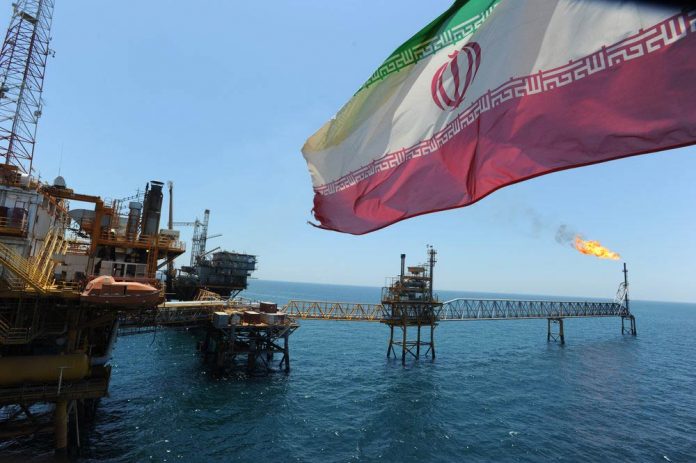The United States ramped up pressure on Iran’s energy sector Wednesday, imposing a new round of sanctions targeting Iranian oil exports and penalizing a China-based independent “teapot” refinery accused of purchasing over $1 billion in crude oil from Tehran.
In a statement, the U.S. Treasury Department said the sanctions aim to further isolate Iran’s oil trade and discourage Chinese firms from engaging in business with the Islamic Republic, as President Donald Trump revives his “maximum pressure” campaign against Iran. The campaign seeks to bring Iranian oil exports down to zero and curb Tehran’s nuclear ambitions and regional influence.
The latest sanctions, part of a broader effort to crack down on what U.S. officials call Iran’s “shadow fleet,” also target several companies and vessels accused of facilitating clandestine shipments of Iranian crude to China. These actions mark the sixth round of sanctions since Trump resumed his hardline stance on Iran earlier this year.
Among the entities sanctioned is a small independent Chinese refinery, part of a network of so-called “teapot” refiners, which are less regulated and have minimal exposure to the U.S. financial system. While China’s state-run oil companies have largely halted Iranian purchases to avoid U.S. penalties, independent refiners have continued imports through alternative payment channels, primarily using Chinese yuan and intermediaries to bypass the U.S. dollar and financial oversight.
“Any refinery, company, or broker that chooses to purchase Iranian oil or facilitate Iran’s oil trade places itself at serious risk,” said Treasury Secretary Scott Bessent. “The United States is committed to disrupting all actors providing support to Iran’s oil supply chain.”
In tandem with the sanctions, the Treasury also issued updated guidance to the global shipping and maritime industry on identifying and preventing sanctions evasion, emphasizing Iran’s reliance on a vast and opaque network of vessels to obscure the origins and destinations of its oil cargoes.
The new measures come as the Trump administration reopens nuclear negotiations with Iran, with the first round held in Oman last weekend and a second round expected in Rome. Trump had previously withdrawn the U.S. from the 2015 Iran nuclear deal during his first term, arguing it failed to prevent Iran from pursuing nuclear weapons.
Since then, Iran has significantly expanded its uranium enrichment activities beyond the deal’s limits.
Iran maintains that its nuclear program is solely for civilian energy purposes, a claim disputed by Western powers who believe Tehran aims to develop weapons-grade capabilities.
In response to the latest sanctions, Chinese Foreign Ministry spokesperson Liu Pengyu condemned the U.S. actions, calling them “unwarranted suppression” and warning that “China will take necessary steps to safeguard its legitimate rights and interests.”
Despite not recognizing U.S. sanctions, China remains the largest importer of Iranian oil, leveraging a trade system designed to avoid detection and minimize exposure to American enforcement.
Tammy Bruce, a spokesperson for the U.S. State Department, reaffirmed the administration’s commitment to strict enforcement. “As long as Iran attempts to generate oil revenues to fund its destabilizing activities, the United States will hold both Iran and all its partners in sanctions evasion accountable,” she said.




